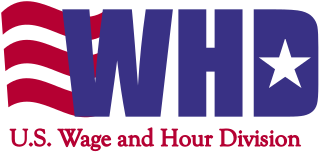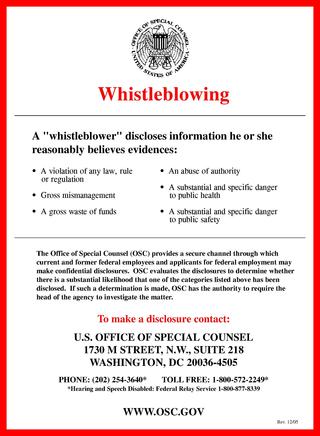The Workforce Investment Act of 1998 was a United States federal law that was repealed and replaced by the 2014 Workforce Innovation and Opportunity Act.
Human resource management (HRM) is the strategic and coherent approach to the effective and efficient management of people in a company or organization such that they help their business gain a competitive advantage. It is designed to maximize employee performance in service of an employer's strategic objectives. Human resource management is primarily concerned with the management of people within organizations, focusing on policies and systems. HR departments are responsible for overseeing employee-benefits design, employee recruitment, training and development, performance appraisal, and reward management, such as managing pay and employee benefits systems. HR also concerns itself with organizational change and industrial relations, or the balancing of organizational practices with requirements arising from collective bargaining and governmental laws.
An employment contract or contract of employment is a kind of contract used in labour law to attribute rights and responsibilities between parties to a bargain. The contract is between an "employee" and an "employer". It has arisen out of the old master-servant law, used before the 20th century. Employment contracts relies on the concept of authority, in which the employee agrees to accept the authority of the employer and in exchange, the employer agrees to pay the employee a stated wage.

The Employment and Training Administration (ETA) is part of the U.S. Department of Labor. Its mission is to provide training, employment, labor market information, and income maintenance services. ETA administers federal government job training and worker dislocation programs, federal grants to states for public employment service programs, and unemployment insurance benefits. These services are primarily provided through state and local workforce development systems.

Executive Order 11246 was an executive order of the Article II branch of the U.S. Federal government, in place from 1965 to 2025, specifying non-discriminatory practices and affirmative action in federal government hiring and employment.
Contingent work, casual work, gig work or contract work, is an employment relationship with limited job security, payment on a piece work basis, typically part-time that is considered non-permanent. Although there is less job security, freelancers often report incomes higher than their former traditional jobs.
In contract law, a non-compete clause, restrictive covenant, or covenant not to compete (CNC), is a clause under which one party agrees not to enter into or start a similar profession or trade in competition against another party. In the labor market, these agreements prevent workers from freely moving across employers, and weaken the bargaining leverage of workers.
The United States federal civil service is the civilian workforce of the United States federal government's departments and agencies. The federal civil service was established in 1871. U.S. state and local government entities often have comparable civil service systems that are modeled on the national system to varying degrees.
Green jobs are, according to the United Nations Environment Program, "work in agricultural, manufacturing, research and development (R&D), administrative, and service activities that contribute(s) substantially to preserving or restoring environmental quality. Specifically, but not exclusively, this includes jobs that help to protect ecosystems and biodiversity; reduce energy, materials, and water consumption through high efficiency strategies; de-carbonize the economy; and minimize or altogether avoid generation of all forms of waste and pollution." The environmental sector has the dual benefit of mitigating environmental challenges as well as helping economic growth.
A Project Labor Agreement (PLA), also known as a Community Workforce Agreement, is a pre-hire collective bargaining agreement with one or more labor unions that establishes the terms and conditions of employment for a specific construction project. Before any workers are hired on the project, construction unions have bargaining rights to determine the wage rates and benefits of all employees working on the particular project and to agree to the provisions of the agreement. The terms of the agreement apply to all contractors and subcontractors who successfully bid on the project, and supersedes any existing collective bargaining agreements. PLAs are used on both public and private projects, and their specific provisions may be tailored by the signatory parties to meet the needs of a particular project. The agreement may include provisions to prevent any strikes, lockouts, or other work stoppages for the length of the project. PLAs typically require that employees hired for the project are referred through union hiring halls, that nonunion workers pay union dues for the length of the project, and that the contractor follow union rules on pensions, work conditions and dispute resolution.

The Wage and Hour Division (WHD) of the United States Department of Labor is the federal office responsible for enforcing federal labor laws. The Division was formed with the enactment of the Fair Labor Standards Act of 1938. The Wage and Hour mission is to promote and achieve compliance with labor standards to protect and enhance the welfare of the Nation's workforce. WHD protects over 144 million workers in more than 9.8 million establishments throughout the United States and its territories. The Wage and Hour Division enforces over 13 laws, most notably the Fair Labor Standards Act and the Family Medical Leave Act. In FY18, WHD recovered $304,000,000 in back wages for over 240,000 workers and followed up FY19, with a record-breaking $322,000,000 for over 300,000 workers.
National Disability Employment Awareness Month was declared in 1988 by the United States Congress for the month of October to raise awareness of the employment needs and contributions of individuals with all types of disabilities. The month is an extension of "National Employ the Physically Handicapped Week" originally observed during the first week of October beginning in 1945. In 1962 the word "physically" was removed from that week to acknowledge the employment needs and contributions of individuals with all types of disabilities. Americans observe National Disability Employment Awareness Month by paying tribute to the accomplishments of the people with disabilities whose work helps keep the nation's economy strong and by reaffirming their commitment to ensure equal opportunity for all citizens.
Workforce development, an American approach to economic development, attempts to enhance a region's economic stability and prosperity by focusing on people rather than businesses. It essentially develops a human-resources strategy. Work-force development has evolved from a problem-focused approach, addressing issues such as low-skilled workers or the need for more employees in a particular industry, to a holistic approach considering participants' many barriers and the overall needs of the region.

A whistleblower is a person who exposes any kind of information or activity that is deemed illegal, unethical, or not correct within an organization that is either private or public. The Whistleblower Protection Act was made into federal law in the United States in 1989.

The Wisconsin Department of Workforce Development (DWD) is an agency of the Wisconsin state government responsible for providing services to Wisconsin workers, employers, and job-seekers to meet Wisconsin's workforce needs. To effect its mission, the Department administers unemployment benefits and workers' compensation programs for the state of Wisconsin; ensures compliance with state laws on wages and discrimination; provides job resources, training, and employment assistance for job-seekers; and engages with employers to help them find and maintain adequate staffing for their businesses.
The Colorado Department of Labor and Employment (CDLE) connects job seekers with great jobs, provides an up-to-date and accurate picture of the economy to help decision making, assists workers who have been injured on the job, ensures fair labor practices, helps those who have lost their jobs by providing temporary wage replacement through unemployment benefits, and protects the workplace — and Colorado communities — with a variety of consumer protection and safety programs.

The White House Initiative on Asian Americans, Native Hawaiians, and Pacific Islanders (WHIAANHPI) is a United States governmental office that coordinates an ambitious whole-of-government approach to advance equity, justice, and opportunity for Asian Americans, Native Hawaiians, and Pacific Islanders. The Initiative collaborates with the Deputy Assistant to the President and AA and NHPI Senior Liaison, White House Office of Public Engagement and designated federal departments and agencies to advance equity, justice, and opportunity for AA and NHPIs in the areas of economic development, education, health and human services, housing, environment, arts, agriculture, labor and employment, transportation, justice, veterans affairs, and community development.
Executive Order 13672, signed by U.S. President Barack Obama on July 21, 2014, amended two earlier executive orders to extend protection against discrimination in hiring and employment to additional classes. It prohibited discrimination in the civilian federal workforce on the basis of gender identity and in hiring by federal contractors on the basis of both sexual orientation and gender identity.

Executive Order 13990, officially titled Protecting Public Health and the Environment and Restoring Science to Tackle the Climate Crisis is an executive order signed by President Joe Biden on January 20, 2021, which implements various environmental policies of his administration including revoking the permit for the Keystone XL Pipeline and temporarily prohibiting drilling in the arctic refuge. It was rescinded by Donald Trump within hours of his assuming office on January 20, 2025.

The CHIPS and Science Act is a U.S. federal statute enacted by the 117th United States Congress and signed into law by President Joe Biden on August 9, 2022. The act authorizes roughly $280 billion in new funding to boost domestic research and manufacturing of semiconductors in the United States, for which it appropriates $52.7 billion. The act includes $39 billion in subsidies for chip manufacturing on U.S. soil along with 25% investment tax credits for costs of manufacturing equipment, and $13 billion for semiconductor research and workforce training, with the dual aim of strengthening American supply chain resilience and countering China. It also invests $174 billion in the overall ecosystem of public sector research in science and technology, advancing human spaceflight, quantum computing, materials science, biotechnology, experimental physics, research security, social and ethical considerations, workforce development and diversity, equity, and inclusion efforts at NASA, NSF, DOE, EDA, and NIST.








